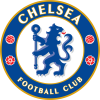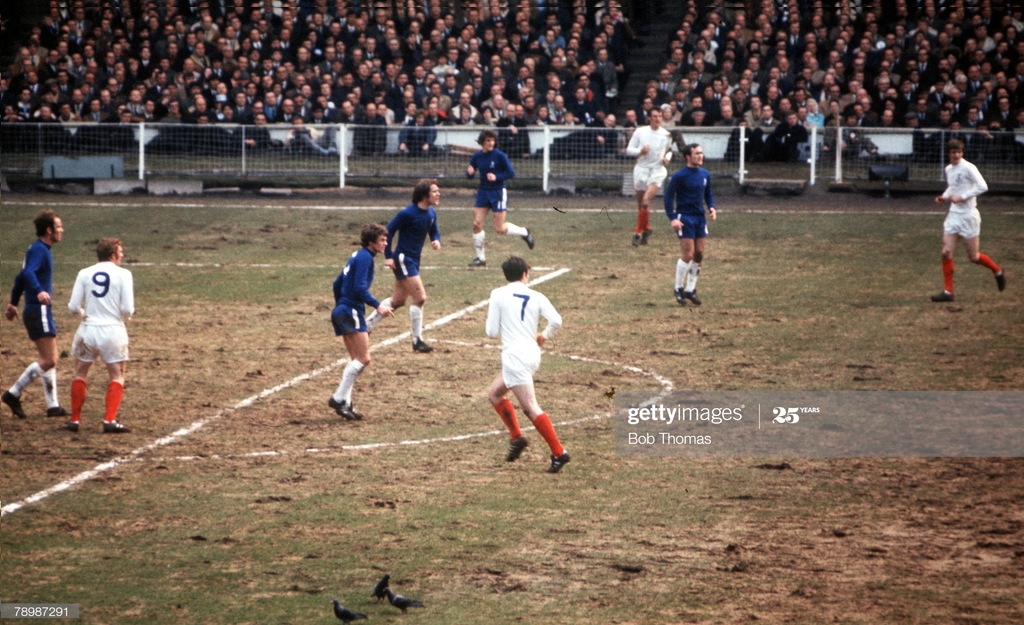Modern football fans would scoff at the idea of any final being replayed, prompting the official definition of the word: "The last game in a sports tournament or other competition, which will decide the winner of the tournament."
Yet, supporters of a Chelsea persuasion would make an argument for a second finale, owing their original FA Cup scalp to a replay, after battling it out with Leeds United in a frantic 2-2 draw at Wembley Stadium.
As were the rules of the era, the pair played again 18 days later at Old Trafford, on this occasion crowning Chelsea as the official victors. On the 50th anniversary of the initial tie, we take a trip down memory lane to learn about the Blues cup heroes.
Battle of the best
This fixture threw together two of the top teams in England, Chelsea and Leeds finishing third and second respectively in the fabled First Division.
It not only became a bout of quality, but a clash of styles; the Blues were full of flair and elegance, a reflection of London's high-end lifestyle, implemented by their mild-mannered manager, Dave Sexton, whilst the Yorkshire side embodied the areas working class grit and determination, led by influential coach, Don Revie.
Leeds had already done the double over Chelsea in the league, winning 2-0 at Elland Road before handing a 5-2 drubbing in the reverse fixture at Stamford Bridge, cementing their status as the countries elite club for the decade.
Neither side had won England's oldest cup competition prior to the final, Chelsea falling short to Tottenham Hotspurs in 1967, defeating Leeds in the semi-final, the latter losing to Liverpool in 1965. Such was the nature of the rivalry, approximately 28 million people tuned in to witness this sporting spectacle.
Dodgy defending
Football pitches are now renowned for their slick, neatly trimmed surface, not a blade of grass out of line. No such luxurious were afforded in 1970, even the hallowed turf of the national stadium, Wembley looking more like a bomb site by the final whistle.
Some of the defending from both teams were equally as unappealing, optimised by Leeds opening goal on the 20-minute mark. Leeds undisputed star, Eddie Gray, curled in a corner from the left hand- side, straight into a crowd of figures, including Chelsea 'keeper, Peter Bonetti, who sadly passed away a day after the recent anniversary.
Failing with his attempted punch, Bonetti was beaten to the ball by Jack Charlton, but thankfully Chelsea had two players covering on the line. Not so thankfully as it turned out; neither Eddie McCreadie nor John Hollins were able to connect with their clearance, both comical slicing thin air as the ball trickled over the line.
Chelsea responded well, forcing Leeds to clear off their own goal line, an action repeated in the second half, before succumbing to an equally comedic error for the Blues leveller four minutes from half time.
Peter Houseman's speculative effort from 30 yards was well struck, but seemingly a simple task for Gary Sprake to deal with. Once again, not the case, the shot squirming through Sprake’s grasp as the sides went into the interval level pegging.
To both 'keepers credit, they managed a handful of top class saves to marginally make up for their faux pas; Bonetti acrobatically denying Gray from range, Sprake successfully saving from Houseman in the dying embers of the match.
Brilliance in Blue
Despite the individual errors, and feisty nature of the affair, there were stand out moments of individual class.
Houseman was Chelsea's standout performer, defining Sexton's swaggering style from the midfield with his elegant left foot. Similarities could be made between Houseman and the current Blues boss, Frank Lampard, not purely because they shared the number eight jersey. Both enjoyed shooting from range, both could dictate play and both loved scoring in finals.
Another to impress for the Londoners was Ian Hutchinson, his header six minutes from the final whistle earning Chelsea the chance to replay, and eventually win, their first FA Cup. Hutchinson enjoyed a prolific goalscoring season, netting 16 goals in 26 league appearances. His partnership with Peter Osgood was especially striking, the pair notching a staggering 53 goals between them in all competitions during 1969/70 campaign.
For Leeds, Gray was arguably the games man of the match, tormenting Chelsea's right-back David Webb for the majority of the contest, assisting the opener and letting fly from range on numerous occasions, most noticeably smashing the cross bar from just outside the penalty area in the second half.
Revie's team would hit the post again, a header from Alan Clarke, benefitting in this instance as the rebound fell to Mickie Jones, striking low into the bottom corner to give Leeds the advantage once more.
After an additional 30 minutes, Chelsea and Leeds would lock horns again that same month, in an even more fierce finale, rounded off by a 2-1 victory for the Blues.










































